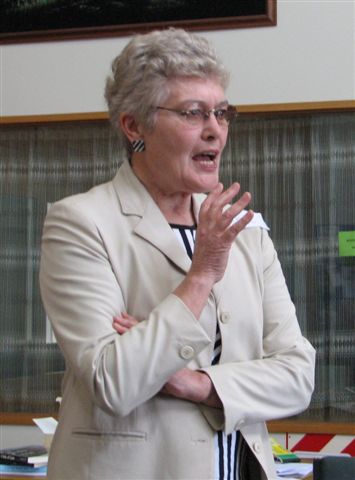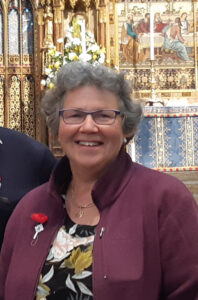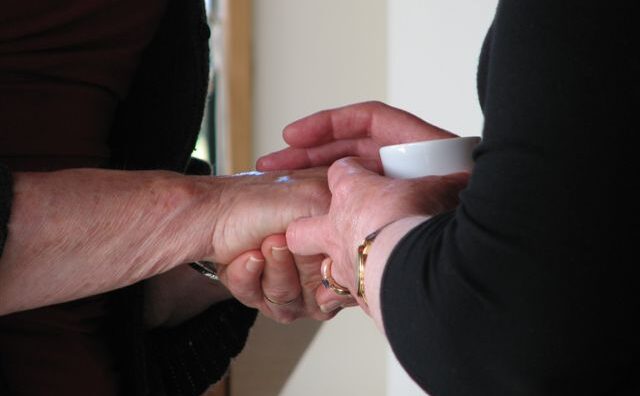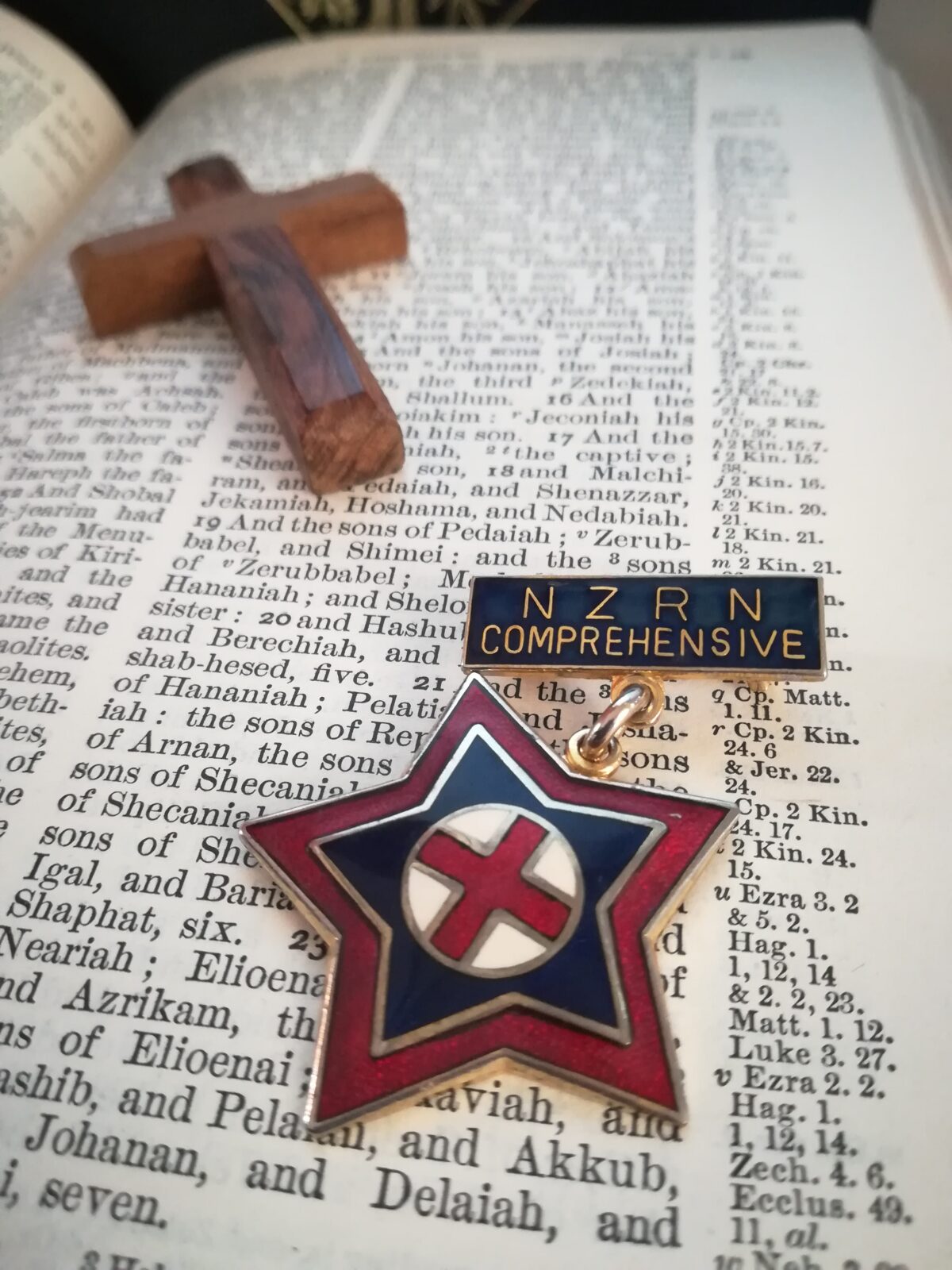Also known as faith community nursing, this new type of practice involved providing holistic care with a strong faith-based component.

Having developed the Nelson pilot, I was the first nurse in New Zealand to set up such a practice, using resources I had gleaned from the United States and Australia, where it is a recognised specialty. The role was initially an unpaid volunteer position.
The pilot was a success and I was followed, in time, by three further nurses, each modelling their practice to respond to the needs of the community and their personal skills and time. The position was eventually a salaried one, using funding from an Anglican trust.
This kind of nursing fitted well with Mason Durie’s Te Whare Tapa Whā model of health care. Indeed, it fits well with the whānau ora focus of today. The nurse working in a church setting focuses not just on the medical silos of physical and psychological care, but holistically considers the whānau/family and role of spirituality.
This vision of nursing care was captured by others around the country in different settings, including elder care, a general practice in a rural area and also a role which linked in with established health-care charities in urban areas. Two faith community nurses — myself and Noreen Wright, who worked in Christchurch — were recognised in the Honours lists with a Queen’s Service Medal for our contribution to health in New Zealand.

The model for New Zealand faith community nursing that started at the Nelson Diocese also spread to the United Kingdom when parishioners visiting from the UK read about it on a noticeboard at Nelson Cathedral. They took the concept home with them to the church there and many parish nurse practices have been established in the UK, with support from different denominations.

Today, there is a global movement of parish or faith community nurses, including in Ukraine, where this work has continued in spite of the war.
The New Zealand Faith Community Nurses Association (NZFCNA) was established in 2003, with the aim of providing support, education and fellowship for faith community nurses. As the number of faith community nurses in the country grew, the association started to hold annual conferences, and Kaitiaki could be relied on to highlight the role and provide a window to explore a nursing practice which openly included spiritual care.
The association offered nurses basic training in the faith community nurse specialty. This included the theology of health, the Treaty of Waitangi, the ethics of care, care management, working with volunteers and support networks, community building and Nursing Council competencies, as well as the use of prayer in healing, self-care, advocacy, documentation, and learning from those already in practice.
The conferences were also an opportunity for Māori and Pacific nurses to share their perspectives, and for nurses from overseas, including Canada, Australia and the UK, to share with us their experiences.
This kind of nursing fitted well with Mason Durie’s Te Whare Tapa Whā model of health care.
A special conference was held in Christchurch following the 2011 earthquake, where nurses, clergy, emergency personnel and residents shared their stories.
Today, the ministry in New Zealand continues in a few areas but fewer nurses are coming forward to volunteer for the role or to help run the NZFCNA. Most faith community nurses have always been volunteers and many who have volunteered in the past were newly retired or working part-time. Many now feel there is too much to cope with in their lives to volunteer.

Sadly, the Nelson position ended in 2022 when Judith Fitchett retired. Times have changed — churches have stopped funding parish nurses as they put their money into other things. To my knowledge there is now only one paid faith community nurse in practice in New Zealand.
We pray that the future may hold a time when nurses are less exhausted and less pressured and able to once again respond to the call to parish or faith community nursing.
So, in July this year, the NZFCNA deregistered as a society, and we have put our resources into the care of the Nurses Christian Fellowship (NCFNZ), which has generously offered to provide us a “nest, until we are ready to fly again”. Our sister organisation, Australian Faith Community Nurses Association (AFCNA), will be a source of specialist education for parish/faith community nurses.

Both organisations offer formal and informal meetings and sessions that provide social interaction, support and education. The need for these nurses still exists, but the challenge is to get funding, since the very nature of this model of nursing practice makes it have its feet in two camps: health care and the church. Each assumes that the other should be responsible for financial support for the nurse.

Our achievements have been many and a perusal of back copies of Kaitiaki would illustrate some of these. The nurses have risen to the challenges which have faced them.
One older parish nurse working in Dannevirke has been a source of education and support for those in her region throughout the COVID-19 pandemic. She has kept in constant touch with her clients by phone, offering prayer and reassurance alongside government directives.
Another nurse was working with the elderly community providing contact and practical support immediately after the 2013 Seddon earthquake. Others have supported people at home with end-of-life care and worked with those transitioning from hospital to home.
The current role of a registered nurse, especially where resources are spread thin, involves a heavy workload. The environment in which nurses work today is very different from that which prevailed 23 years ago when the FCNA made its tentative beginnings.

We pray that the future may hold a time when nurses are less exhausted and less pressured and able to once again respond to the call to parish or faith community nursing.
Those of you reading this, who may know of the ministry, may wish to join us on October 17, as we celebrate all that has been done, those cared for and the outcomes achieved with sound nursing and a faith in a loving God. Contact me on [email protected] for the Zoom link.
Our website has closed, so this will no longer be a means of contact. Thank you, Kaitiaki for helping us to share our story and making the journey with us.

Elaine Tyrrell has written this reflection on behalf of the New Zealand Faith Community Nurses Association.




